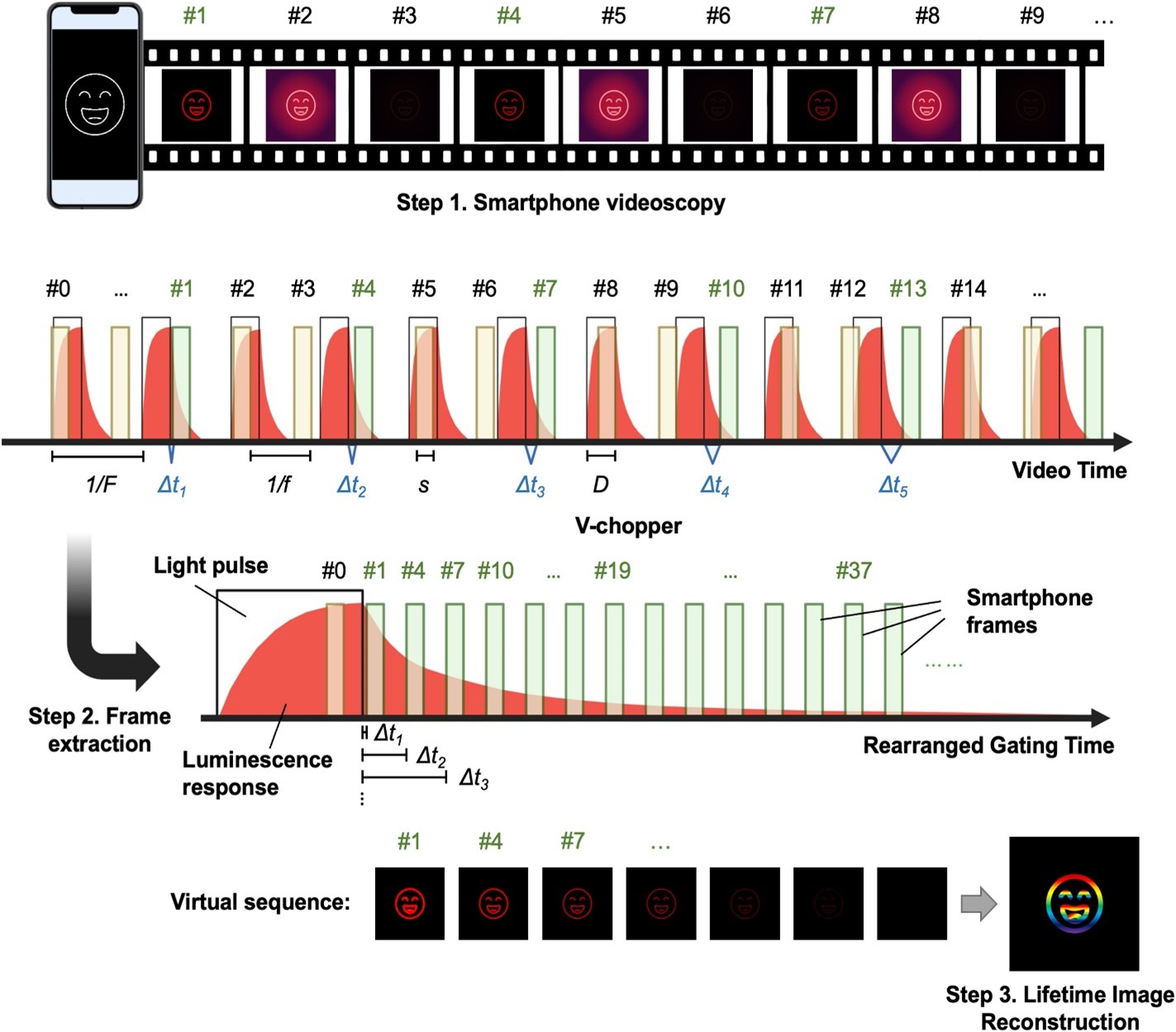2024 AIChE Annual Meeting
(174as) Smartphone V-Chopper: Cost-Effective Luminescence Lifetime Imaging Using Machine Learning
Authors
Alireza Velayati - Presenter, North Carolina State University
Yan Wang, North Carolina State University
Sina Sadeghi, Texas Tech University
Rajesh Paul, North Carolina State University
Evgeny Danilov, North Carolina State University
Frances Ligler, University of North Carolina at Chapel Hill and North Carolina State University
Qingshan Wei, North Carolina State University
Time-resolved techniques, such as time-gated imaging and luminescence lifetime detection, are widely used for background-free fluorescence imaging in biological samples. However, conventional systems often rely on cumbersome mechanical choppers or expensive lab equipment for high repetition rates and temporal resolution, posing barriers to widespread adoption. We present here a cost-effective smartphone-based luminescence lifetime imaging system utilizing a virtual chopper (V-chopper) mechanism and machine learning to enable microsecond (µs) lifetime imaging at low frame rates (e.g., 30 or 60 fps). The V-chopper produces serial time-delayed images between excitation pulses and smartphone gating, facilitating pixel-level lifetime measurement. Employing a convolutional neural network (CNN), we accurately identified these smartphone-gated images with >99.5% accuracy. Using this portable lifetime imager, we demonstrated 2D-lifetime imaging of both persistent luminescent materials (seconds) and shorter-lived materials (microseconds or milliseconds) down to ∼75 µs detection limit without the need for any mechanical choppers. This cost-effective solution extends time-resolved lifetime imaging applications, including point-of-care (POC) lifetime sensors for biomolecule detection.


